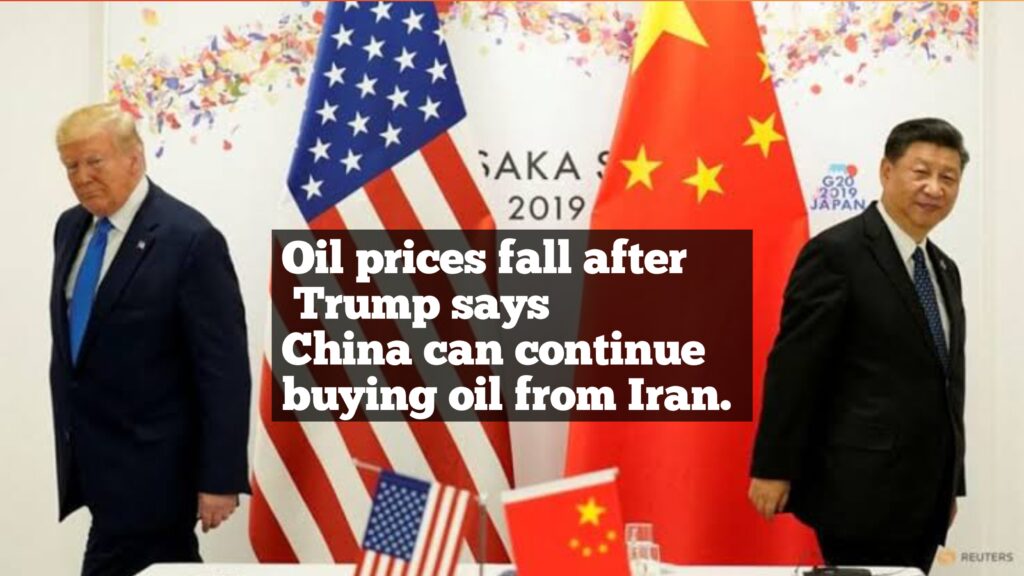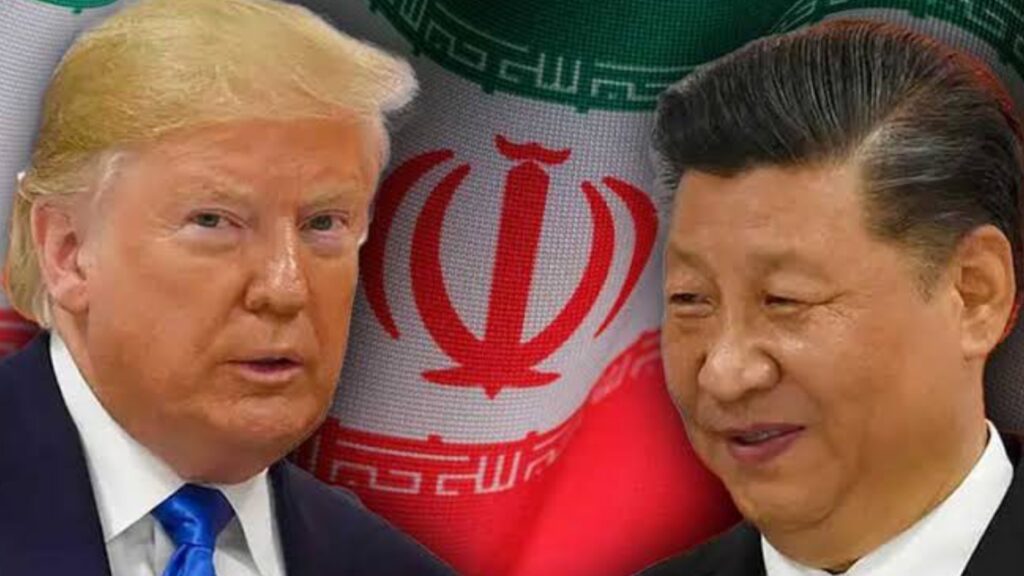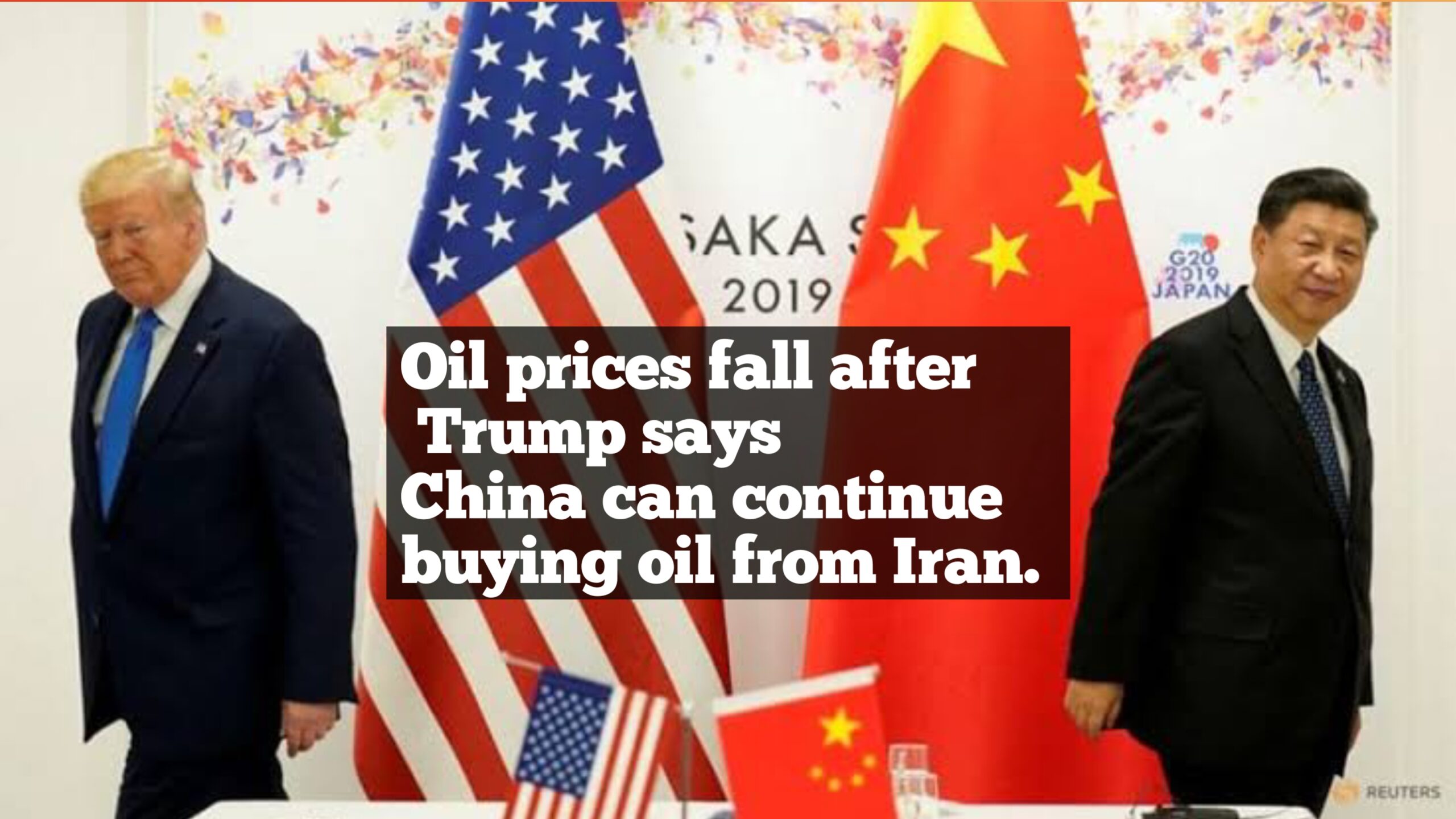In a surprising diplomatic move, Trump tells China to keep buying Iranian oil, stirring debate just hours after announcing a ceasefire between Iran and Israel. The statement has raised eyebrows globally, as the former U.S. President’s remarks appear to directly contradict years of American sanctions and policy aimed at isolating Iran economically.
Speaking from Washington D.C., Donald Trump’s announcement came unexpectedly during a press conference meant to focus on de-escalation in the Middle East. Instead, the spotlight shifted to his unorthodox message to China—a nation that has long defied U.S. pressure when it comes to energy trade with Iran.
Table of Contents
Trump Tells China to Keep Buying Iranian Oil Amid Ceasefire Talks

The backdrop to this bold statement is the recent ceasefire between Iran and Israel, brokered by multiple international actors including the U.S., Qatar, and the EU. After nearly two weeks of devastating airstrikes and missile exchanges, both nations agreed to a temporary halt in hostilities. Just when the focus was shifting toward peacebuilding, Trump tells China to keep buying Iranian oil, bringing oil politics back to the center of global attention.
Observers see this as an attempt by Trump to stabilize global oil prices while also countering Russian influence in the Asian energy market. China remains one of the largest importers of Iranian oil, often bypassing U.S. sanctions via indirect trade routes and payment systems. With Trump’s statement now seemingly giving a green light, some analysts believe it could reshape diplomatic negotiations and energy alliances across the Middle East and Asia.
Why Trump Tells China to Keep Buying Iranian Oil ?
The strategic reasons behind Trump’s statement are complex. Firstly, the former president emphasized that continued Chinese imports of Iranian oil could help lower global crude prices, which have spiked due to recent conflicts. Secondly, it appears to be a diplomatic message to Beijing—offering flexibility in exchange for cooperation in pressuring Iran to uphold the ceasefire.

While past U.S. administrations have sanctioned companies and tankers involved in transporting Iranian oil, Trump tells China to keep buying Iranian oil as a calculated shift, likely meant to balance economic and geopolitical interests. Trump also claimed that isolating Iran completely would “create more problems than it solves” and hinted that engagement, rather than punishment, might lead to better long-term outcomes.
Mixed Reactions From Allies and Critics
The international response has been mixed. European allies were reportedly caught off guard, with diplomats expressing concern that Trump’s words could weaken the unified sanctions regime built over the past decade. On the other hand, oil markets responded positively, with prices dropping slightly as traders anticipated more stable supply chains.
Critics in Washington, including members of Trump’s own Republican Party, argue that encouraging oil trade with Iran could embolden the regime. They fear that such moves undermine the leverage gained through economic sanctions and could complicate ongoing negotiations around Iran’s nuclear program.
Still, Trump remains unapologetic. In a follow-up message posted on social media, he stated again that “strategic energy decisions must serve global peace,” doubling down on his belief that Trump tells China to keep buying Iranian oil was the right move.
Impact on U.S.–China Relations and the Iran Deal
This latest development may impact both U.S.–China trade negotiations and the stalled Iran nuclear deal talks. By suggesting that China continue its energy ties with Iran, Trump could be testing Beijing’s willingness to cooperate on broader geopolitical goals, including enforcement of the ceasefire and non-proliferation efforts.
Whether this marks a real shift in U.S. policy or simply Trump’s personal diplomatic style remains to be seen. For now, the fact that Trump tells China to keep buying Iranian oil has added a surprising layer to an already volatile situation in the Middle East.
Conclusion
As the global community processes the unexpected ceasefire between Iran and Israel, Trump tells China to keep buying Iranian oil — a move that could reshape the balance of power across energy, diplomacy, and regional security. Whether this was a strategic gamble or a moment of improvisation, it has undoubtedly stirred fresh debate in an already tense global climate.
All eyes now remain on how China, Iran, and U.S. allies respond to this message—and whether it leads to stabilization or further fragmentation of international policies.
Do Follow for daily news.
